The very idea of deep sea mining is bad enough to have mobilised millions of people against this new industry. Sending tank sized machines kilometres below the surface of the waves to cause irreversible harm to the ocean is not a great sell. But as global support for ocean protection surges, a single company is now turning to Donald Trump and trying to trash international law so it can sink its teeth into the deep seabed. The thing is, this could majorly backfire – and be the spark that torches the whole industry’s future.
We are most effective when we work together, and the ocean is calling for us to stand united now. We call on the international community to rise up and defend multilateralism against rogue actors. The ocean is not real estate to be seized or sold. Decisions on its future affect us all, and must centre the rights and voices of Indigenous communities as its traditional custodians – not neocolonialist corporations.
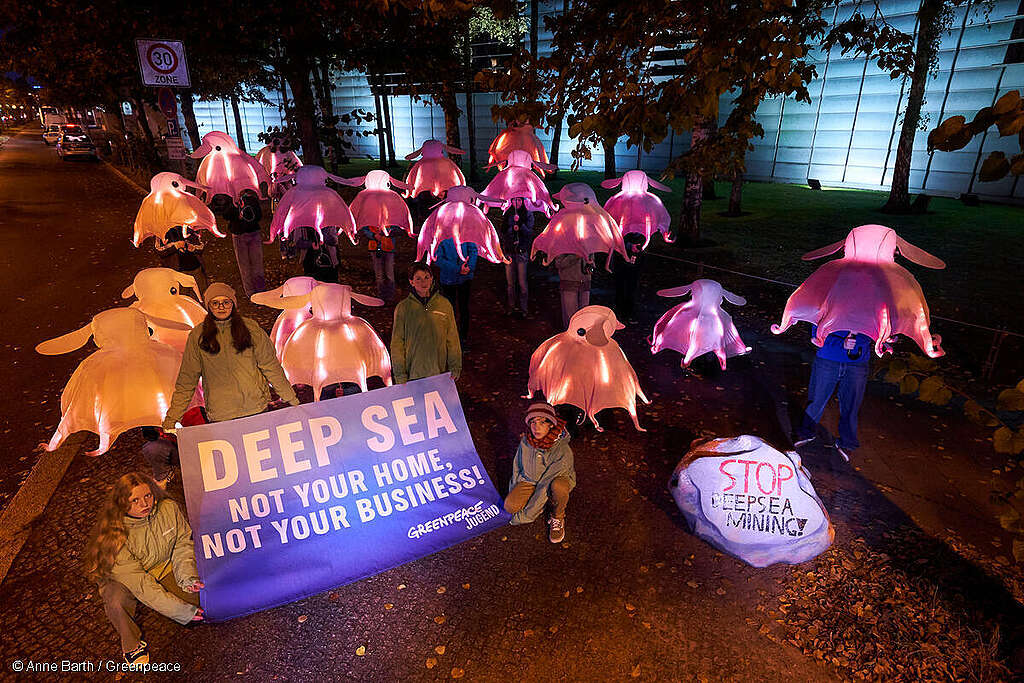
Deep sea mining: a non-starter
Deep sea miners thought it was going to be so simple. Most people had either never heard of deep sea mining, or thought it was a sci-fi movie plotline – not a real threat to the ocean.
That meant international negotiations over whether to allow deep sea mining to start could operate as a fortress for industry interests. New York Times Investigations exposed an inappropriately cosy relationship between The Metals Company (TMC),and the former head of the International Seabed Authority. From luxury dinners, to collaborating to finish a Mining Code “out of the very public eye”, and the ISA even sharing internal data to help the company pick a prime location for its exploration.
But when people started to notice, they started acting! Millions have signed petitions, spoken to their politicians, and convinced over 38 governments to oppose the start of deep sea mining.
Are you one of them? If not, now is your chance to add your voice!
This was not welcome news to this greedy industry, whose only way of turning a profit is to get a greenlight to start deep sea mining. So at the start of this year, deep sea miners sent a letter to the international regulator complaining that it was “not acceptable and unfair” that their companies have spent $2bn on exploration, and yet governments have not given them permission to start mining.
It seems they didn’t realise that the global ocean is not pay-for-entry. Indigenous campaigners spelled out that deep sea mining companies are supposed to be regulated, not making up the regulations themselves.
When this corporate lobbying didn’t get the response the companies wanted, as many governments stood firm that deep sea mining should not begin imminently, TMC threw a major tantrum. In a rogue move, they claimed that “commercial industry is not welcome at the ISA” because of an “environmental activist takeover” and that they would now bypass international law and go to Donald Trump to give them unilateral authorisation to mine in international waters.
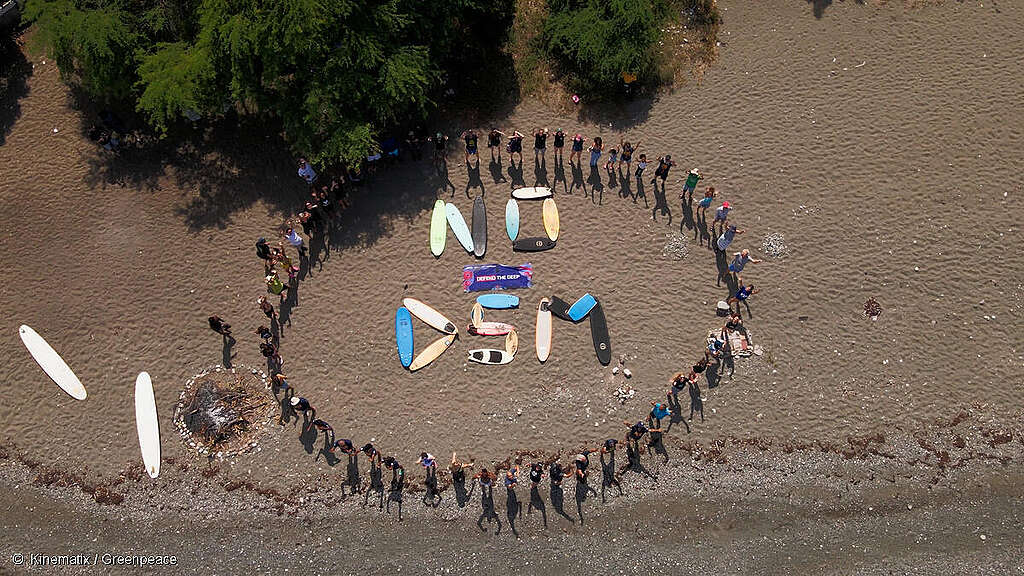
The participants form the words “NO DSM” with the surf boards on the beach.
Still taken from drone footage.
How could Trump start deep sea mining?
This was a slap in the face to all the countries and millions of people around the world who oppose this dangerous industry. The international seabed is the common heritage of humankind, and nearly 200 governments are signed up to the international framework that no state should take unilateral action to exploit it.
Over 30 governments from all regions of the world called TMC’s bombshell announcement out, with the regulator Secretary-General saying if the USA were to decide unilaterally using an archaic law from fifty years ago to allow deep sea mining to start, it would be a ‘violation of international law’.
After Trump signed an executive order supporting this rogue approach, and TMC submitted the world’s first deep sea mining application for the international seabed, the condemnation has grown to fever pitch. France, China, the European Union and others have publicly criticised this, with France’s ocean minister calling TMC’s plan ‘environmental piracy’.
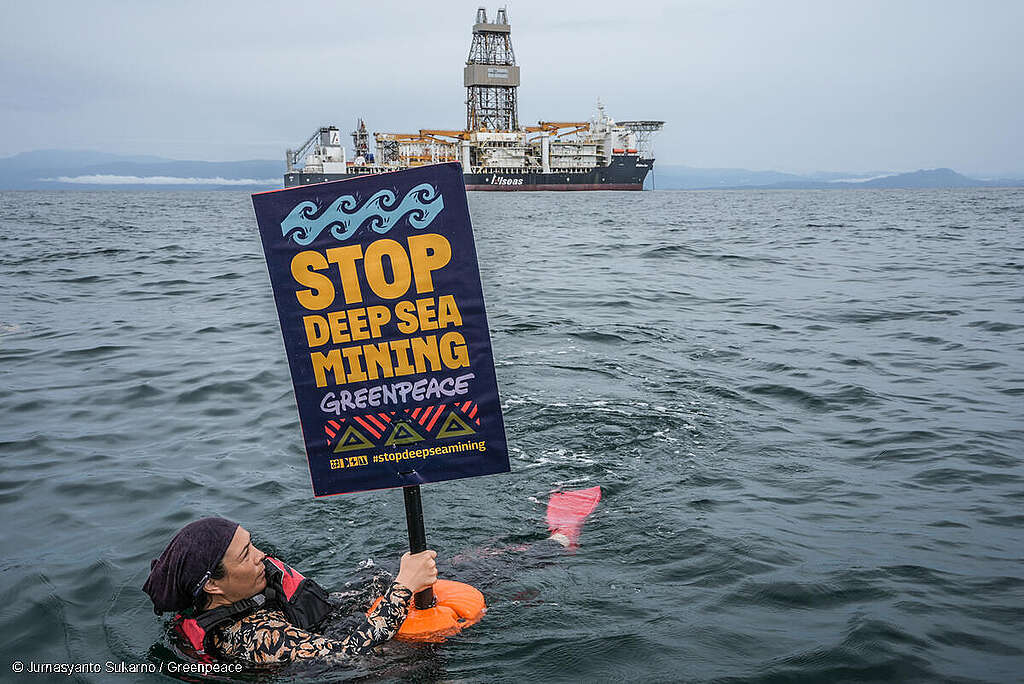
Why are they doing this?
While this ploy has created political shockwaves, the alliance between deep sea miners and the Trump administration is not that surprising.
Beyond the fact that the CEO likes to describe ripping up this untouched ecosystem as collecting ‘golf balls on a driving range’, deep sea mining is the latest way that planet-wrecking politicians and corporations are trying to grab territory, marginalise Indigenous rights, pollute the ocean, and view the environment as a resource to be seized rather than the foundation of life.
This does not come from a place of strength. The deep sea mining industry could see that the tide was turning, and governments from across the world were choosing to prioritise ocean protection over exploitation. TMC was running out of options, running out of cash – and so chose to go nuclear.
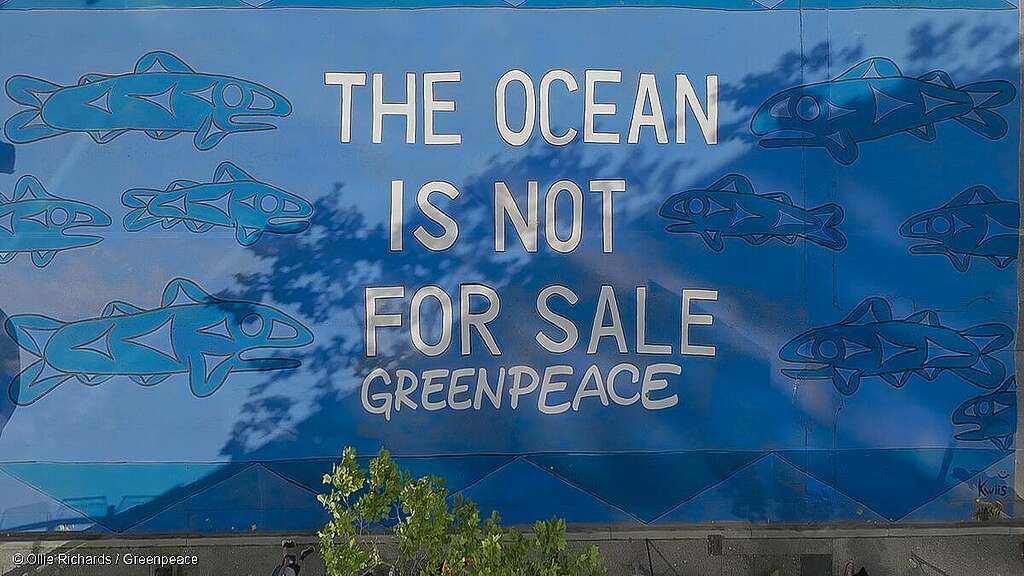
What happens now?
Every government that has tried to start deep sea mining has failed. Because every opportunity we have to bring this to public attention, we strengthen the movement to protect our ocean. From Papua New Guinea to Norway, deep sea miners and their enablers have consistently underestimated the opposition and got stuck in reputational risk, legal challenges and financial troubles.
TMC have even admitted themselves that they are opening up a can of worms. In their latest financial filings, they owned up to the fact that many governments are likely to see a deep sea mining permit issued by Trump for the global ocean as ‘a violation of international law’. This could result in lawsuits, being unable to sell minerals, and companies refusing to work with TMC throughout the supply chain. Pressure is already mounting on Allseas, the providers of the mining ship and machinery, with the CEO saying that Allseas “would not do anything illegal”.
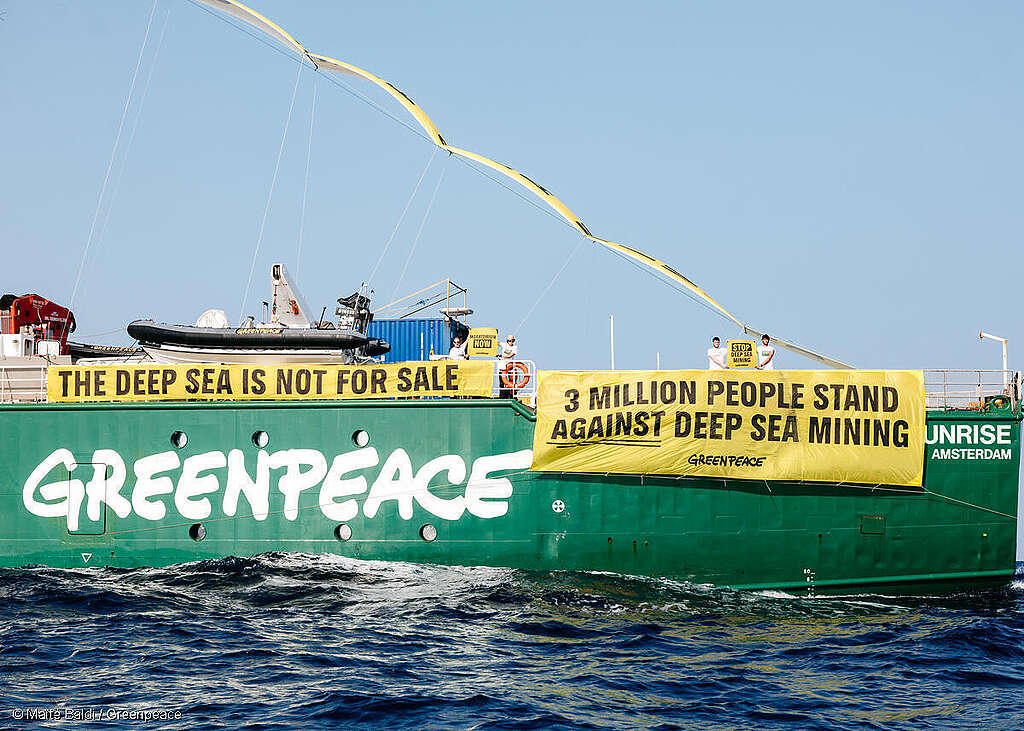
With deep sea miners going via Trump, we now have an even bigger platform to galvanise global opposition and stop this entire industry. This is important, because the biggest threat to our ocean is not actually destructive fisheries or mining machines. It’s the infection of doom and gloom that fools us into thinking we can’t stop things getting worse.
But here’s the thing: campaigning works. Love for the ocean unites people across the world – even as Trump and mining companies try to divide the ocean up for their own profit. People power has already won a Global Ocean Treaty that puts protection – not exploitation – at the heart of how the international community views the global ocean. Over many years, ordinary people across the globe rose up to demand, and win, ocean protection. We’re not giving up now.
As Greenpeace, we know we can win historic victories for the ocean. People before us in the environmental movement had a harder time and they kept fighting – until they won. They stopped the devastating hunting of whales, taking on an industry that was decimating these ocean giants, by winning a global ban on whaling. They dreamed big and fought hard, putting Antarctica off-limits to extraction even during the Cold War.
Deep sea miners are trying to open up one of our planet’s last remaining wildernesses, hand in hand with President Trump, despite global opposition. Governments must react by establishing a moratorium and reinforcing that decisions about the global ocean rest in the hands of all states, together, for the benefit of humankind as a whole.
Stopping deep sea mining through international agreement shows another world is possible. We can build on the growing momentum that when Indigenous peoples are included and involved in decision-making, nature and the life-support system it provides for us all win. It’s a site battle where we can agree to limit private greed for the common good. Let’s make it happen.









